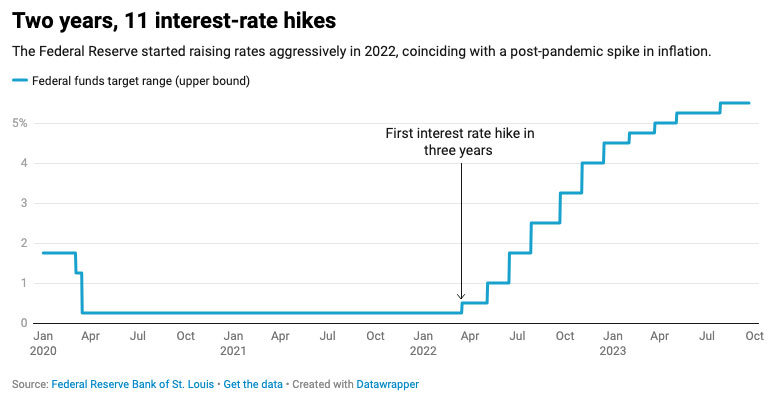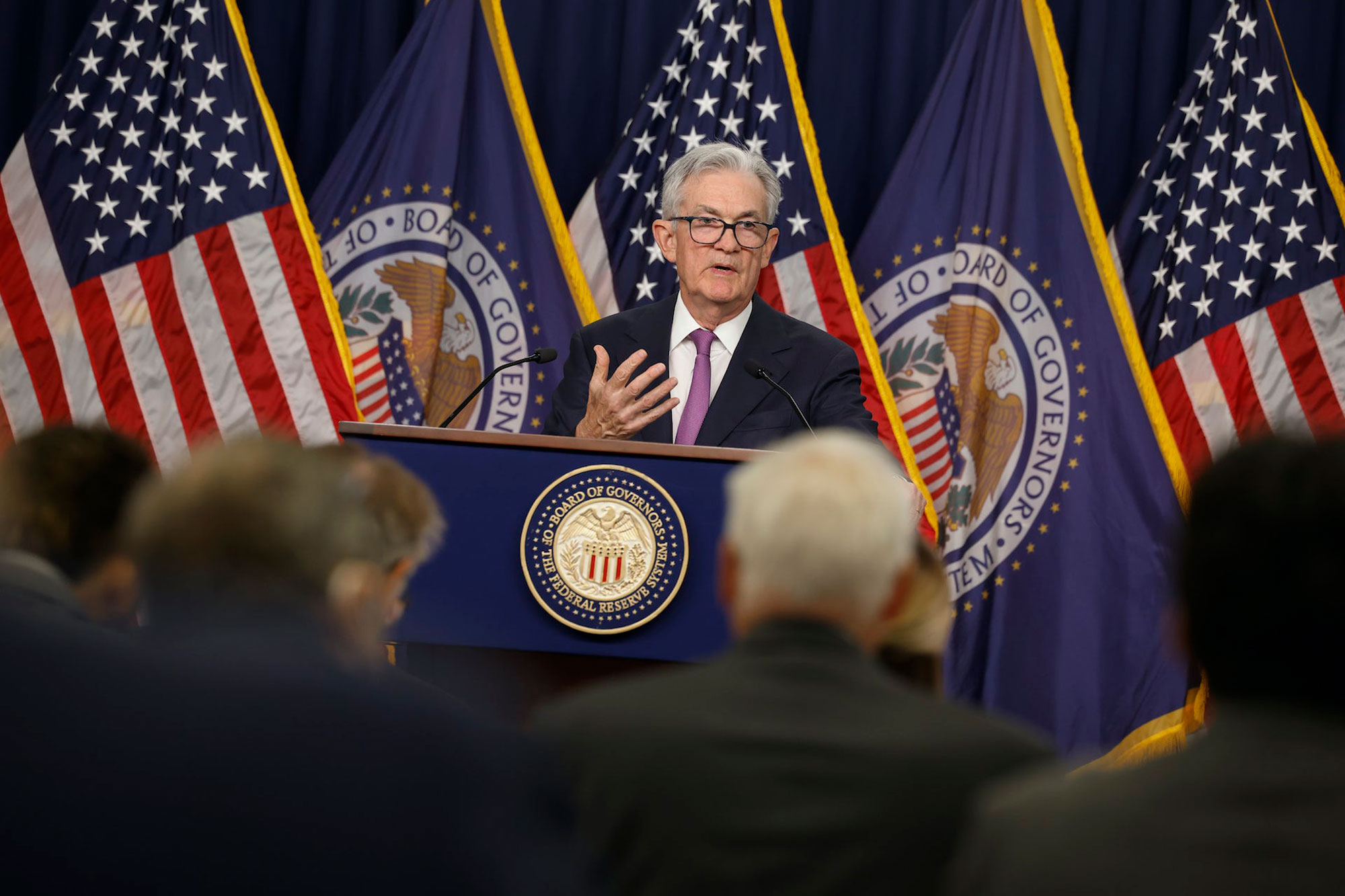Federal Reserve officials held interest rates steady at their monthly policy meeting on Sept. 20, 2023—only the second time they have done so since embarking on a rate-raising campaign a year and a half ago. But it is what they hinted at rather than what they did that caught many economists’ attention: Fed officials indicated that they don’t expect rates to end 2023 higher than they predicted in June—when they last issued their projections.
Since the hiking cycle began, observers have worried about whether increased rates could push the U.S. economy into a downturn. Some have even speculated that a recession had already begun. However, the economy has been more resilient than many expected, and now many economists are wondering whether the seemingly impossible soft landing—that is, a slowdown that avoids crashing the economy—has become a reality.
As a finance professor, I think it’s premature to start celebrating. Inflation is still almost double the Federal Reserve’s target of 2%, and it is expected to come in at around 4% for September. What’s more, the economy is still growing quite fast, with consensus forecasts showing gross domestic product will rise by nearly 3% this quarter. Some early data suggests that could be a low estimate.
What’s Next For Interest Rates?
Fed watchers are parsing every word from the central bank to determine whether another hike is coming this year or next, or if the cycle is truly over. To understand that decision, it helps to consider the bigger picture.

While the U.S. economy has certainly avoided a downturn for longer than many expected, the inflation battle is a long way from finished. In fact, this wouldn’t be the first time the economy looked like it would avoid a soft landing. For the next several months, the economy is not likely to implode without a major spark.
However, inflation may not continue to fall as quickly in the coming year, which means the Fed may still raise rates more than some expect. If rising oil prices continue to boost transportation costs, other goods could also get more expensive, which may mean higher interest rates for longer.
Is This Really The End?
Though Federal Reserve Chair Jerome Powell seemed to indicate that the committee is approaching the end of the hiking cycle, only 10% of economists expect that it is over at this point—not that economists’ track record of forecasting rates is great either. This is largely because Powell has been clear that the Fed is basing its decisions on economic data, which has been strong so far and hopefully will continue in that direction.
So while everyone is watching the Fed this week, they should also keep an eye on broader economic conditions. With luck, the reported data will continue to be strong enough to avoid a downturn, but not so strong that inflation picks back up.![]()
This article is republished from The Conversation under a Creative Commons license. Read the original article.
This MFP Voices essay does not necessarily represent the views of the Mississippi Journalism and Education Group, the Mississippi Free Press, its staff or board members. To submit an opinion for the MFP Voices section, send up to 1,200 words and sources fact-checking the included information to azia@mississippifreepress.org. We welcome a wide variety of viewpoints.






